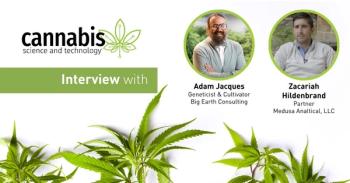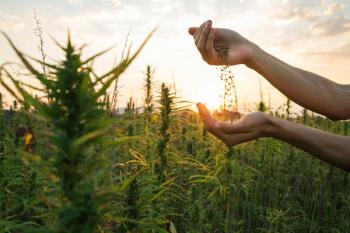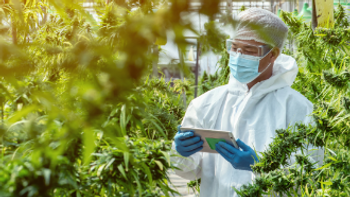
Ask the Experts: Cultivation, Part IV: If You Were Teaching a Class on Cannabis Cultivation, What Is the Most Important Thing that Newcomers to the Field Would Need to Learn?

Zac Hildenbrand, Karan Kapoor, Autumn Karcey, and Roger Kern offer advice on the most important thing newcomers to cannabis cultivation need to learn.
Leading cultivators and researchers from the cannabis industry-Zac Hildenbrand, Inform Environmental, LLC; Karan Kapoor, KapoorAg Consulting Inc. (formerly with JC Green Inc. and Avana Canada Inc.); Autumn Karcey, Cultivo, Inc.; and Roger Kern, Agate Biosciences-participate in this round-table discussion series on cultivation. This month they offer advice on the most important thing newcomers to cannabis cultivation need to learn.
If you were teaching a class on cannabis cultivation, what is the most important thing that newcomers to the field would need to learn?
Zac Hildenbrand: The science of cultivation is a lot of more involved than putting a plant under lights and watering it occasionally. In order to produce premium, high potency plants, once must be constantly monitoring a myriad of factors such as: nutrient uptake, water quality, lighting distribution, the spectral outputs of your lights, the presence of pests and microbes, and the response of the plants to these factors, amongst others.
Karan Kapoor: I think people need to learn a basic understanding of the cannabis regulations, an understanding the importance of the quality management system, basic knowledge of horticulture and agronomy of cannabis plant, and most important ethics.
Autumn Karcey: Once you begin the path of cannabis cultivation you will find that data and real world experience is king, write down everything. I would emphasize making small, incremental steps and changes. For example, when you are considering implementing new equipment or methods in your grow, it becomes critical to track and then evaluate your progress and data. I would also add, that once you’ve achieved a solid product that you are happy with, work towards maintaining consistency and preserving the quality of that product.
Roger Kern: At Agate Biosciences, we are in the process in putting together a course for that now. It starts with choosing the right system for growing. I’m a big advocate of hydroponics and top-down drip systems. Also, it’s important to start with the right strain for your grow; pick something that’s productive, high-yield and easy to grow. An example of that would be Blue Dream. And I recommend starting with a system you can scale up as you learn to grow the plants. Finally, be proactive when it comes to pest and disease control; work with someone who is experienced in Integrated Pest Management (IPM).
Click here to read
Newsletter
Unlock the latest breakthroughs in cannabis science—subscribe now to get expert insights, research, and industry updates delivered to your inbox.



